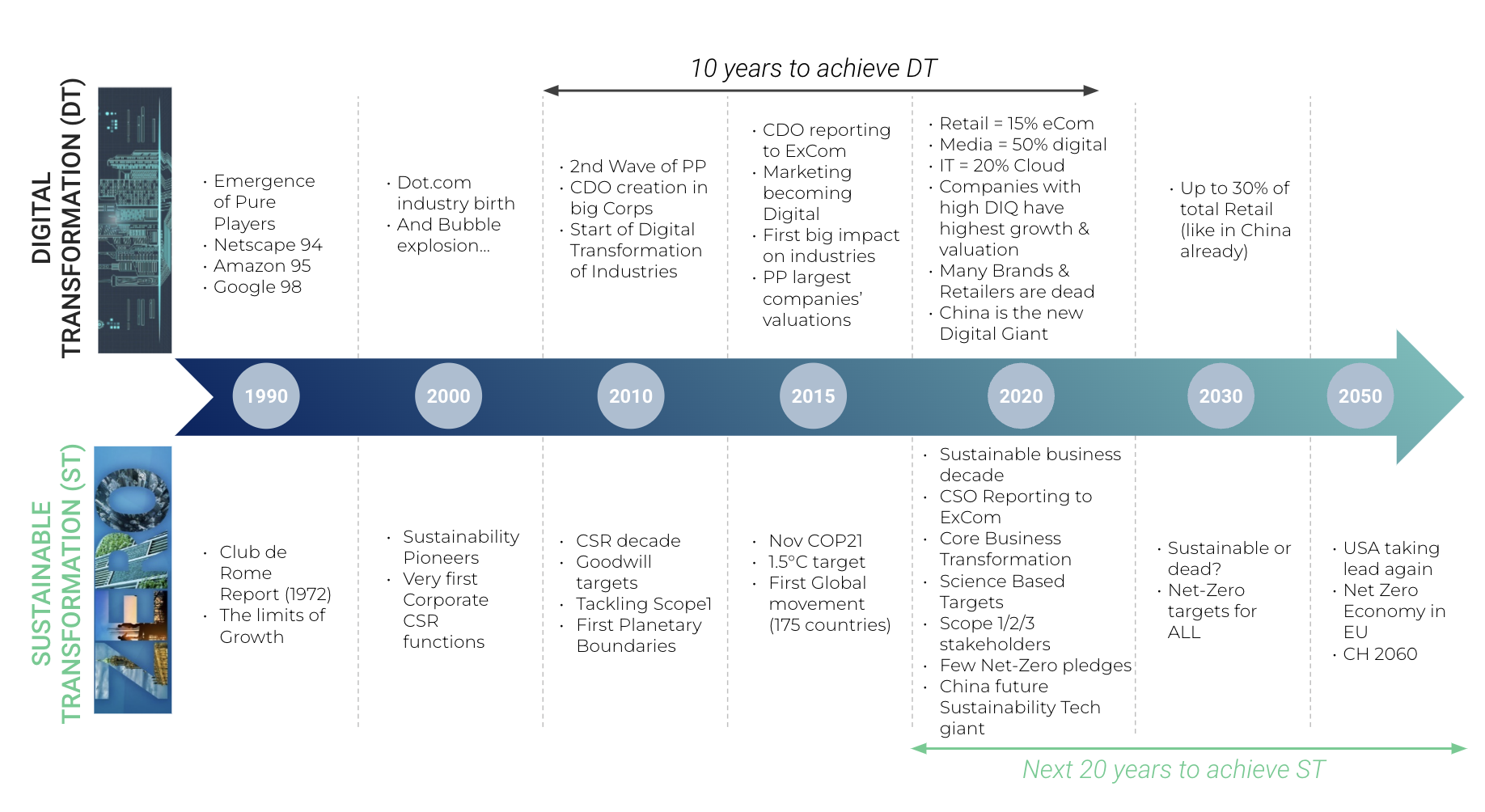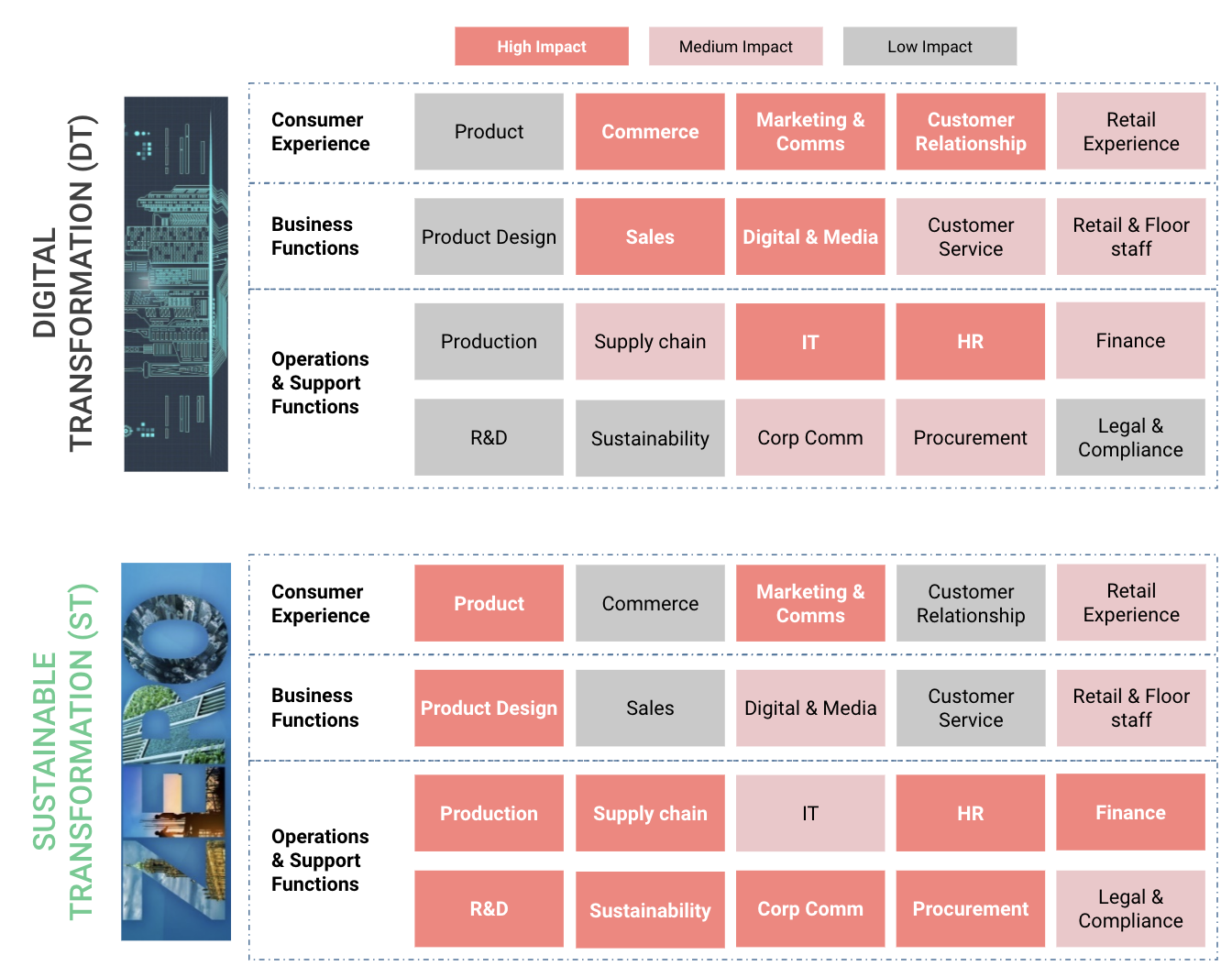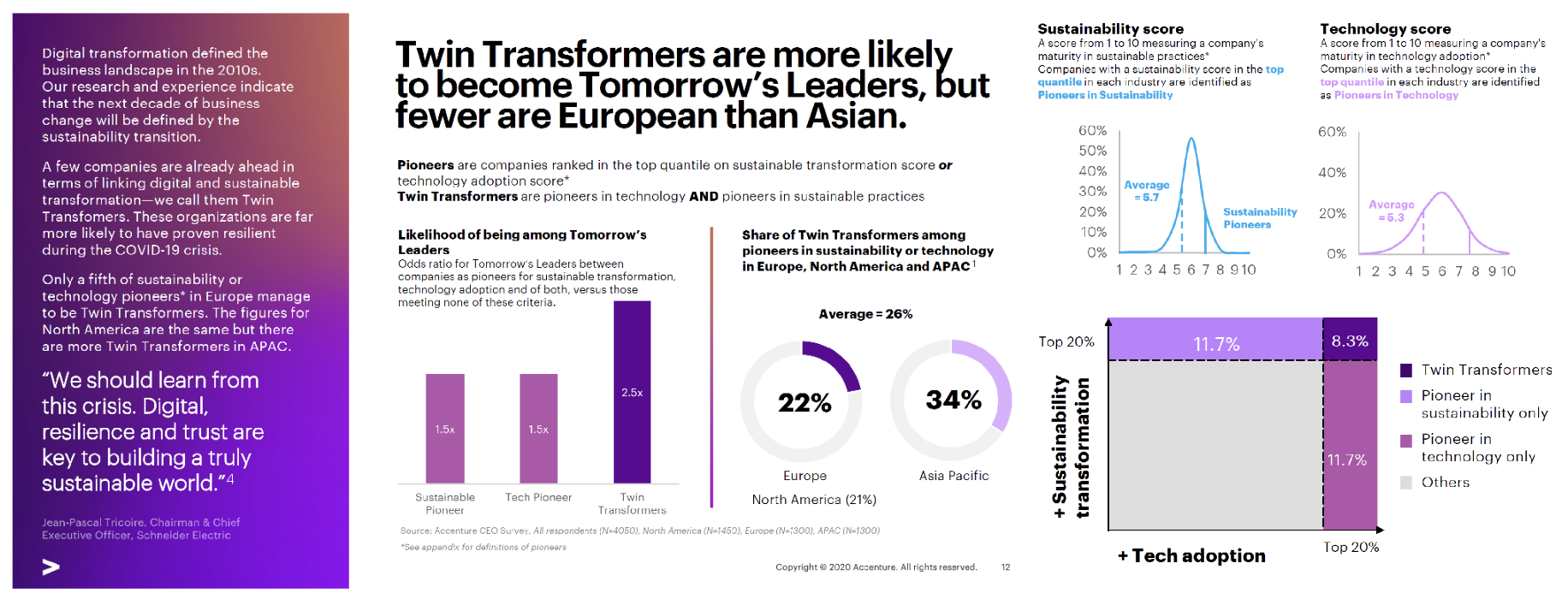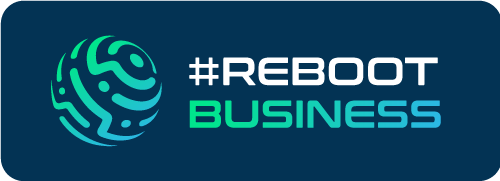
In the year 2000, we saw the emergence of a new form of business – the Digital Pure Players, companies that completely embraced new business models and shook many industries, like Google, Amazon and many other Tech companies.
2010 – The CORPORATE digital transformation era
In 2010, after the disruption of almost all markets, companies had to start their Digital Transformation for survival because of the new market forces. After ten years, in 2020, only a few companies achieved true transformation and many died, with numerous famous examples in the Book, Retail, Entertainment and Consumer Devices Industries. Digitalization has been the most significant economic transformation since the Industrial Revolution in the late 18th century.
Similarly, we saw in the 2000s a new breed of companies embracing sustainability strategies, like Patagonia or Interface. They have a different view on how to conduct business and, although they did not disrupt the markets, they did show a different path for more responsible and sustainable businesses.
With the increasing pressure from legislators and consumers, as well as the dramatic crossing of too many planetary boundaries, the true Sustainable Transformation of Companies started in 2020 with the Covid crisis being a tipping point in the general understanding of our systems breaking – a sanitary crisis emerging from an ecological one. The decade of Sustainable Transformation has started, and it will probably last longer than 10 years, and a key question is: What can we learn from the preceding Digital Transformation?

Digital Transformation – a Consumer-led Revolution
The digital transformation brought about a new way of doing business introducing content- and data-driven sales, of which 15% are done online. This “Business 2 Consumer” model transformed every customer touchpoint and the overall relationship between businesses and consumers, placing the latter at the center. This resulted in the internalization of the content creation process, with creative and media departments emerging in the internal structure of businesses, the integration of new skills (tech, data,…), and the up-skilling of the Sales and Marketing teams. IT became an enabler instead of a cost center.

Sustainable Transformation – Planetary AND SOCIAL Boundaries driven
Sustainable Transformation can be compared with Digital Transformation due to the dimension of change it causes in corporate and support functions. The rise of environment protection legislation and consumer awareness pushed companies to redesign their offers and thus impacted all corporate and support functions.
There was a shift in the role of the sustainability office, transforming from a corporate function to a competence center. This was also accompanied by the adoption of the Triple Bottom Line accounting for Finance – Planet, People & Profit.
Digitally-Enabled Sustainability
Interestingly, we can see those two transformations combining, and we believe that the Digitalization of Sustainability will have a key role in the transition to a more sustainable economy.
In our work, we are witnessing the emergence of SustainTech in multiple domains, from Carbon Management to Eco-Design of products. The use of data will also benefit responses and decision-making, becoming equipped to deal with the complexity of ecosystems and anthropogenic impacts. Crossing data from companies’ IT systems with scientific databases enables the development of accurate and transparent Impact Analytics and obtain digested information and KPIs to facilitate strategic environmental planning and decision-making.
The digitalization of sustainability also opens an efficient and transparent flow of information between multiple stakeholders within the Supply Chain, allowing the cascading of Sustainability Goals both upstream, to suppliers, and downstream to consumers.
There is no doubt that going from no/little/partial, low granularity data in the hands of a corporate team, to integral granular real-time data in the hands of all employees will change the game.
Both Digital and Sustainable Transformation came out with the biggest Challenges and Opportunities, and the ability to successfully conduct both in parallel was the biggest lever for value creation (the financial one). 8.3% of companies were achieving this.

Study by Accenture, more information here
To learn more about our offer, visit our Consulting Solutions.
Listen to our podcast, Reboot Business, hosted by Julien Devaureix
Impact Labs CSRD Offer
We are happy to introduce our tailored CSRD service offer, designed to simplify compliance with the new regulations and drive impactful sustainability strategies. This way, teams can focus on reducing their footprint and developing effective nature strategies.
We streamline the CSRD reporting process with relevant tech and tools to make it as smooth and efficient as possible. Our service is designed to guide you through every step of this transformative journey.
Checklist on 10 key aspects to consider when selecting a CSRD Tool
Selecting the right technology for implementing the Corporate Sustainability Reporting Directive (CSRD) involves several key considerations to ensure compliance, efficiency, and effectiveness.
#REBOOT Business 12 – Une Economie Plus Juste
EPISODE SUMMARYAu fil des podcasts Reboot se dessine une ligne convergente vers l’urgence impérieuse de changer le système dans sa globalité. C’est...





